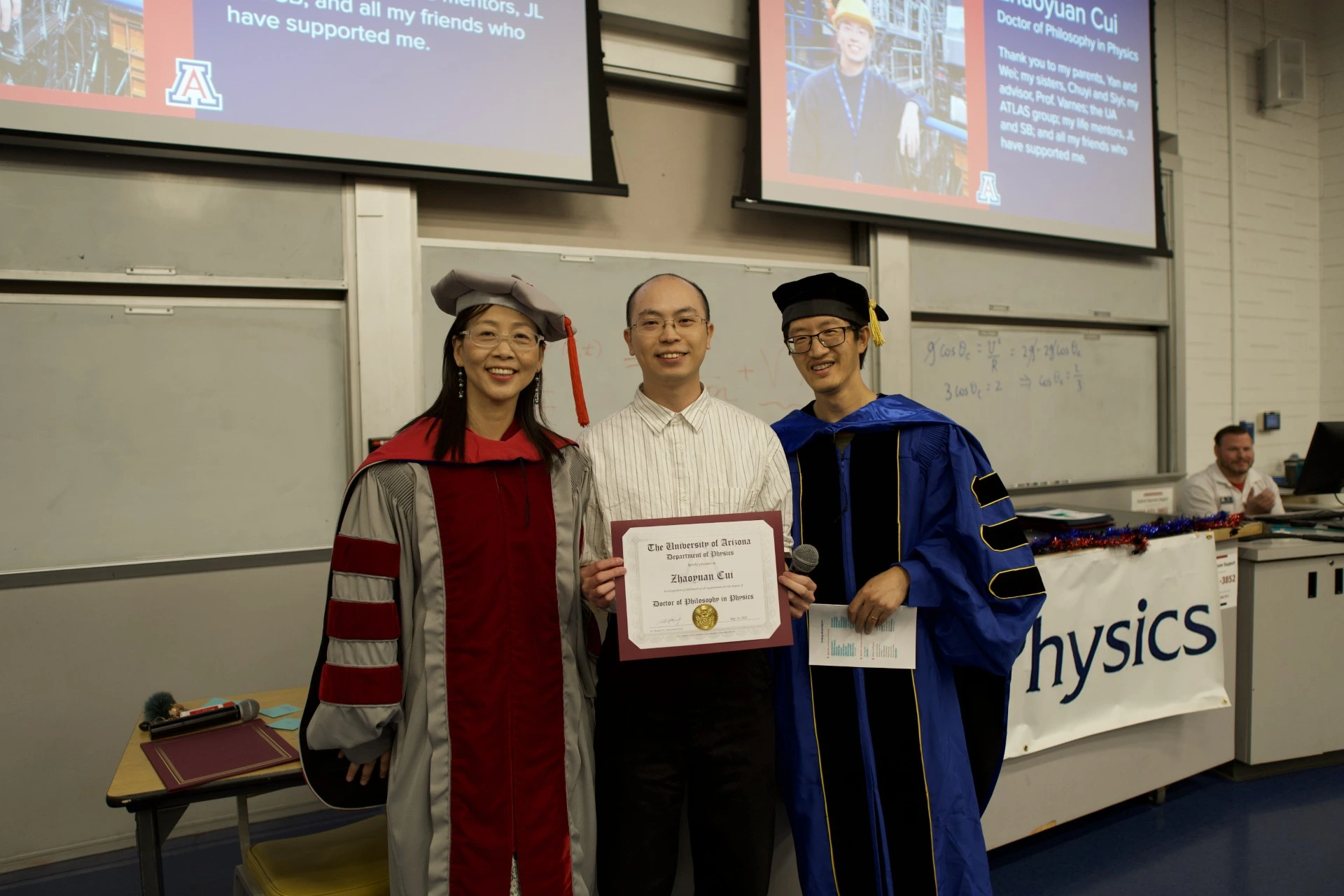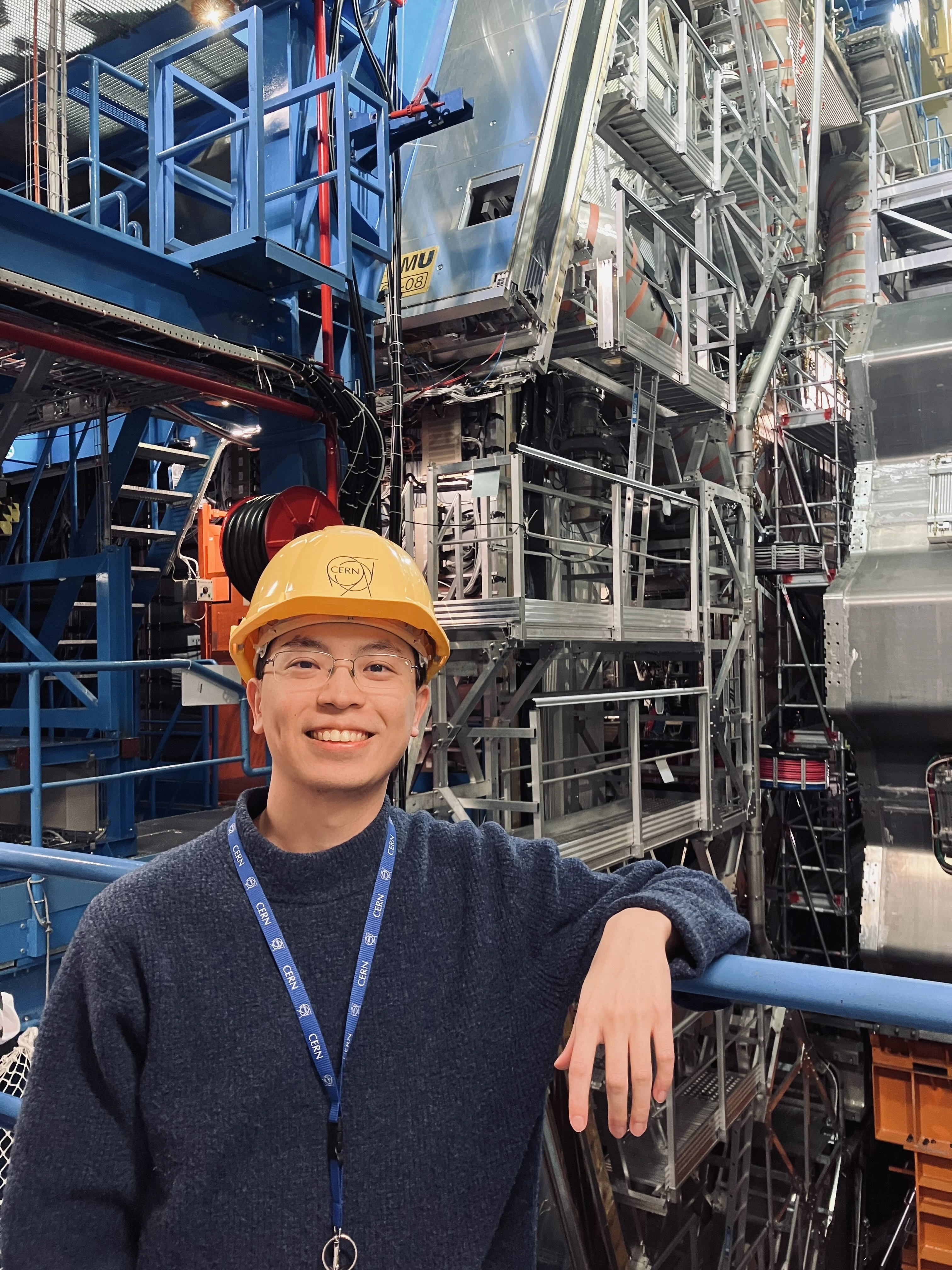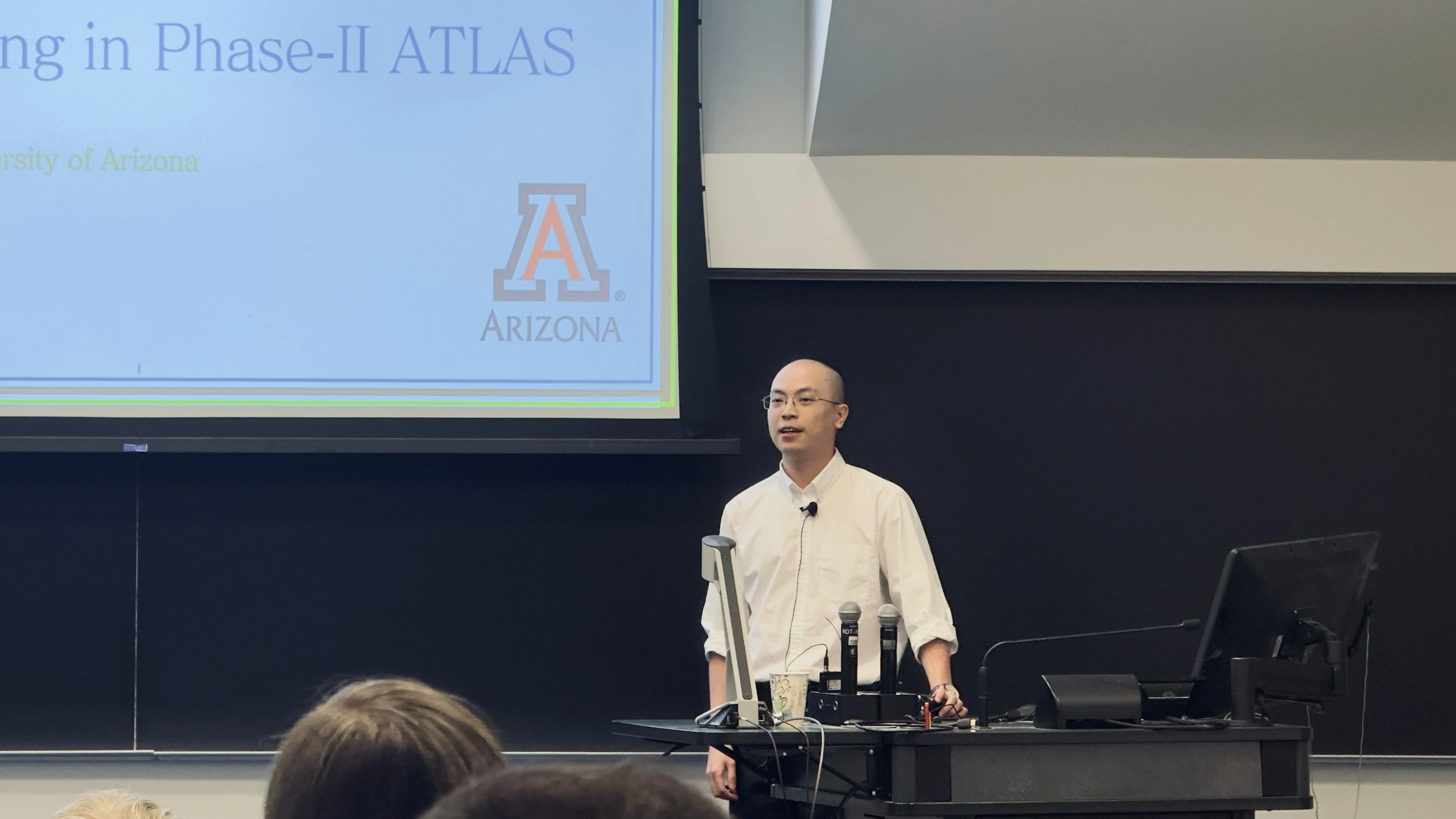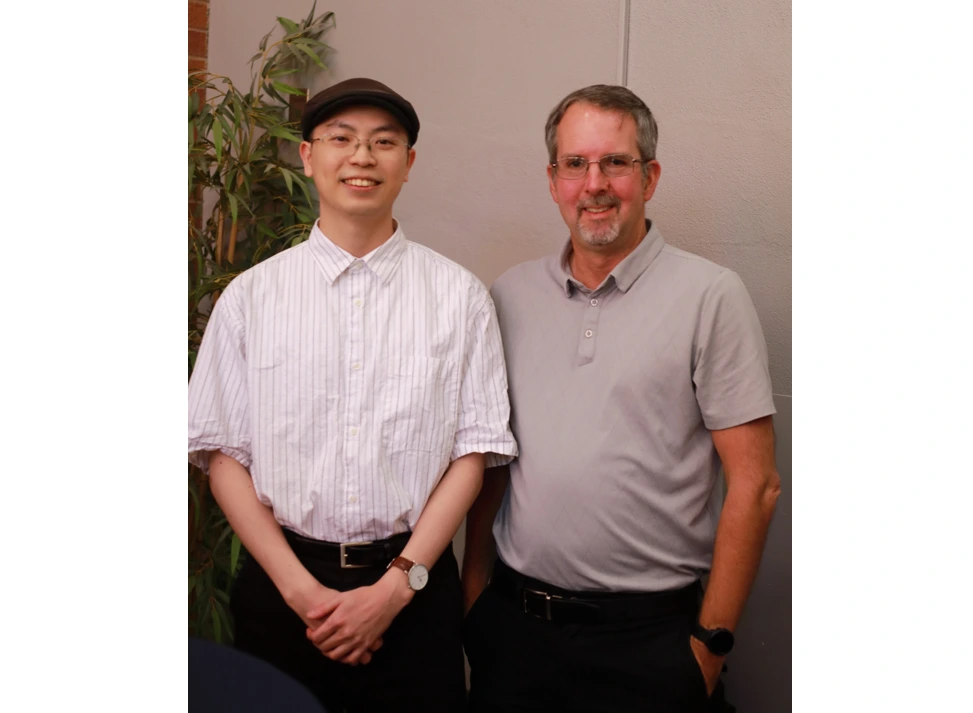Maxwell Cui Receives US ATLAS Outstanding Graduate Student Award
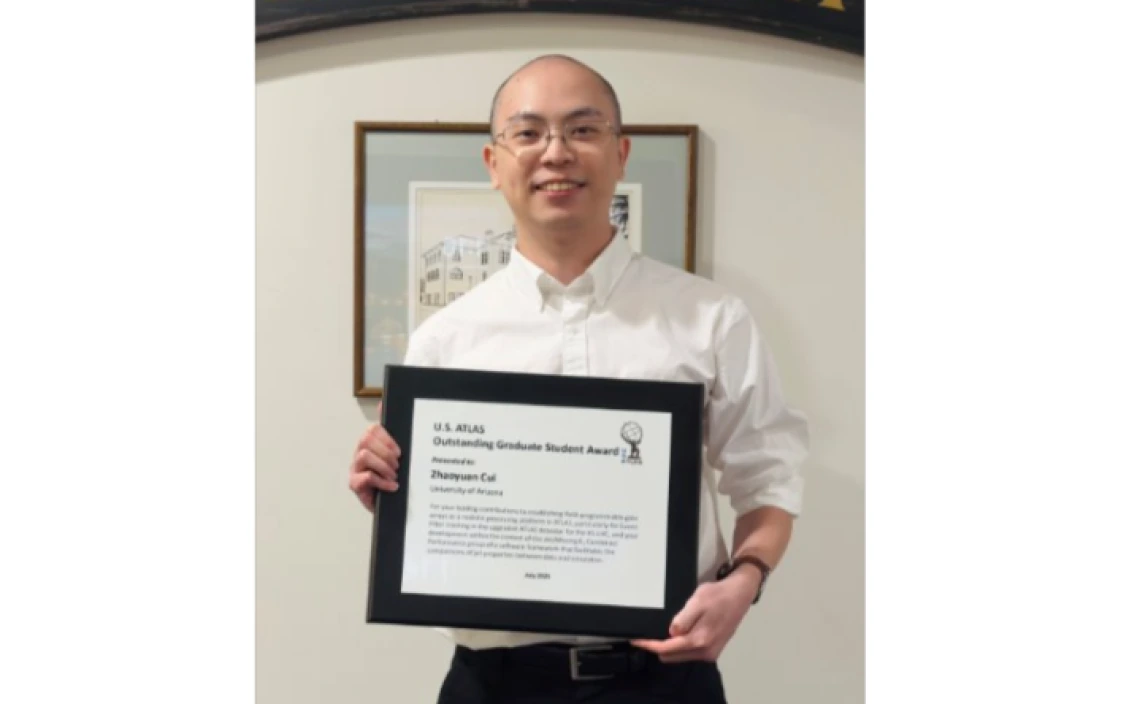
At the annual US ATLAS Summer Workshop, this year held at the University of Michigan, Maxwell Cui was recognized for his exceptional contributions to the ATLAS experiment at the CERN Large Hadron Collider. Cui received the US ATLAS Outstanding Graduate Student Award, with the following acknowledgment: "For your leading contributions to establishing field-programmable gate arrays as a realistic processing platform in ATLAS, particularly for Event-Filter tracking in the upgraded ATLAS detector for the HL-LHC, and your development within the context of the Jet/ETmiss Combined Performance group of a software framework that facilitates the comparisons of jet properties between data and simulation."
Maxwell is part of the department’s experimental high-energy physics group, which is led by Profs. Elliott Cheu, Rachel Hyneman, Ken Johns, John Rutherfoord, and Erich Varnes, all of whom work on ATLAS. Maxwell’s research includes developing and executing a search for new particles that are similar to (but more massive than) the Higgs boson, developing tools for studying the detector response to “jets” of particles that are produced by high-energy quarks or gluons, and particularly in the development of an improved “trigger” system for the experiment. Such a system is needed at the LHC since protons collide at an enormous rate, so that recording the data from every collision is impossible. Fortunately, the vast majority of collisions occur via processes that have already been well studied, so we are free to ignore them. The trick is deciding in real time which collisions are worth keeping and which can be safely dropped, and the trigger system performs that task. In the coming years, as the LHC is enhanced to further increase the collision rate (becoming the “High-Luminosity Large Hadron Collider”, or HL-LHC), the trigger system will need to also become more capable. Maxwell is investigating the use of field-programmable gate arrays (FPGAs) in conjunction with CPUs to perform part of the trigger task (charged track identification) faster and using less power than could be done with a CPU alone. He has made essential contributions to this project, including being the first to successfully integrate FPGA algorithms into the standard ATLAS software.
Maxwell is supervised by Prof. Varnes, and expects to complete his Ph.D. this fall.
Please join us in congratulating Maxwell for this well-deserved honor!




